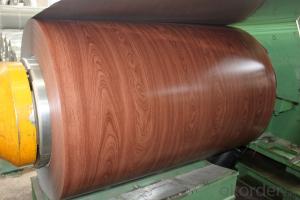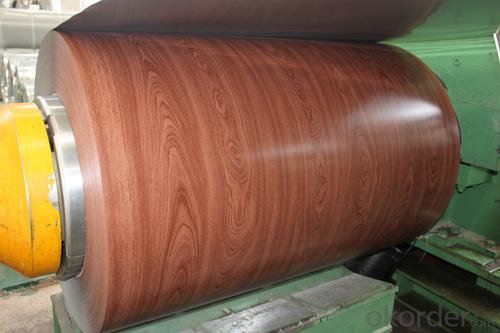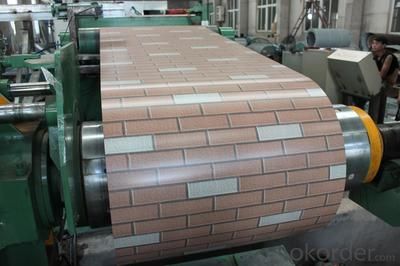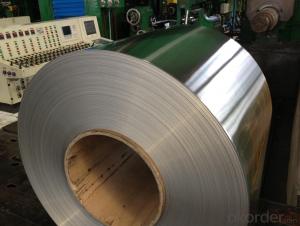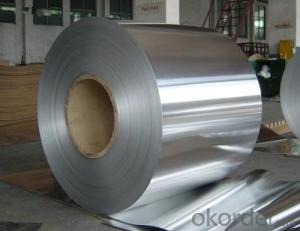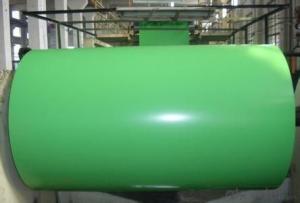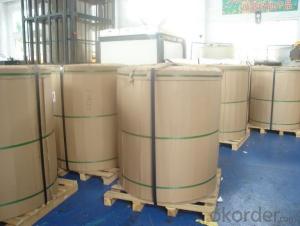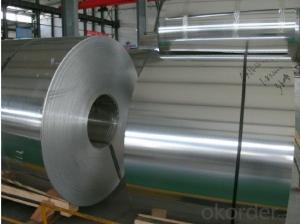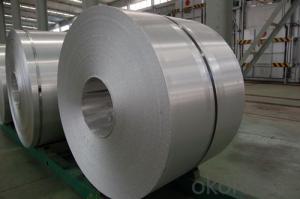5005 Aluminum Sheets - Aluminium Coil Roll Painting for Aluminium Composite Panel
- Loading Port:
- Shanghai
- Payment Terms:
- TT OR LC
- Min Order Qty:
- 8 m.t.
- Supply Capability:
- 2000 m.t./month
OKorder Service Pledge
OKorder Financial Service
You Might Also Like
Specification
Structure of Aluminium Coil Roll Painting for Aluminium Composite Pannel Description:
Coated aluminum coil/sheet are of a wide range of colors, which gives wonderful appearance no matter in residential and commercial constructions of great exhibition centers.
The coated aluminum coil/sheet have been widely used in the fields of construction and decoration( garage doors, ceiling etc.), electronic appliances, lighting decoration, air-condition air pipes, sandwich panels and drainages etc.
Main Features of the Aluminium Coil Roll Painting for Aluminium Composite Pannel:
1) High flexibility
2) Impact resistance
3) Excellent weather-proof durability
4) Anti-ultraviolet
5) High erosion resist
Images of the Aluminium Coil Roll Painting for Aluminium Composite Pannel:
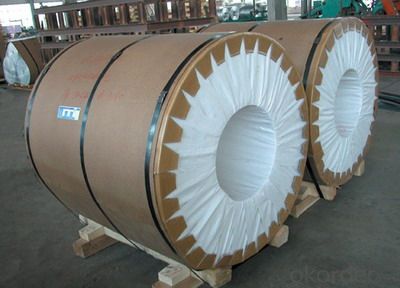
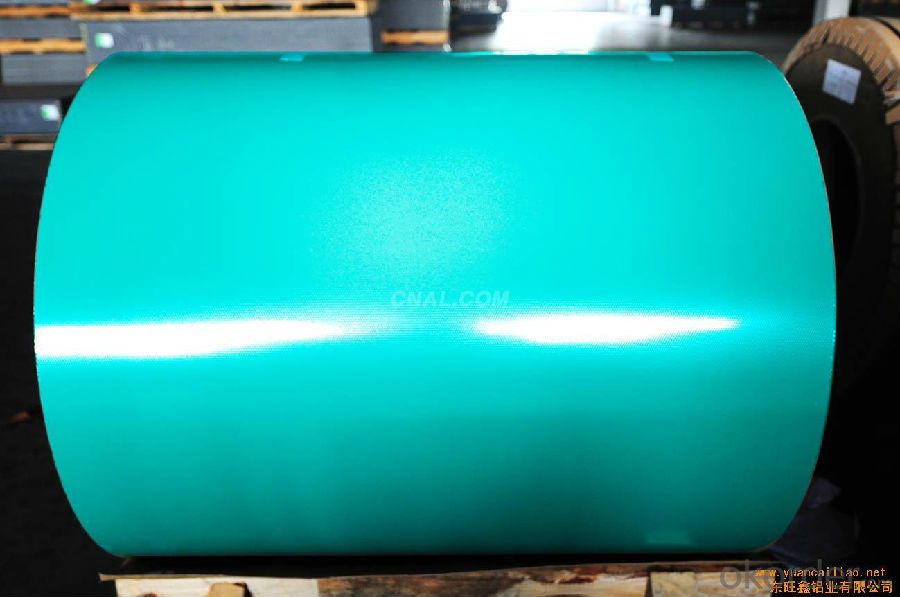
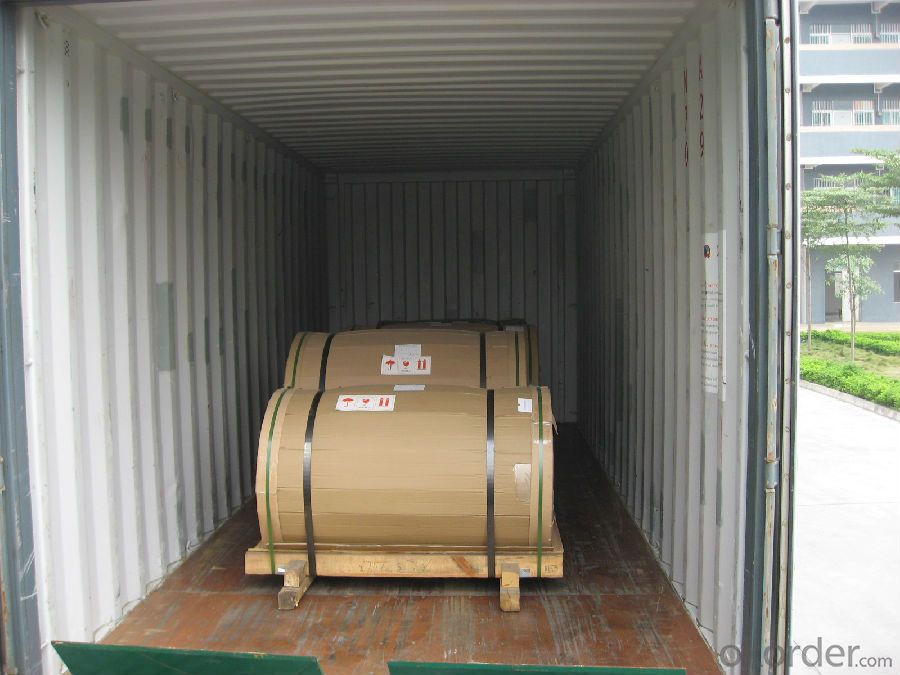
Specifications of Aluminium Coil Roll Painting for Aluminium Composite Pannel:
Alloy | A1100,A3003,A1050,A8011 etc |
Temper | H16,H18,H24 |
Thickness | From 0.024mm to 1.2mm |
Width | Standard width:1240mm |
Special width:1300mm,1520mm,1570mm,1595mm | |
Diameter | Standard dia:1200mm |
Interior dia:150mm,405mm,505mm | |
Weight | 2.5 T/coil,3.0 T/coil |
Coating | PE, PVDF, AC |
Surface | Embossed, mill finish, coated |
Color | AS to code RAL |
Gloss | 10-90%(EN ISO-2813:1994) |
Coating Thickness | PE: more than 18 micron |
PVDF: more than 25 micron | |
Coating Hardness (pencil resistance) | More than 2h |
Coating adhesion | 5J(EN ISO-2409:1994) |
Impact Resistance | No peeling or cracking(50 kg/cm,ASTMD-2794:1993) |
Flexibility (T-bend) | 2T |
MEK resistance | More than 100 |
FAQ Aluminium Coil Roll Painting for Aluminium Composite Pannel:
a.What is monthly capacity
---CNBM is one stated own company and our monthly capacity is about 2000tons.
b. Now which countries do you export your goods?
---Now we export to South East Asia,Africa, North America,South America ect.
- Q: Are aluminum sheets suitable for pharmaceutical packaging?
- Yes, aluminum sheets are suitable for pharmaceutical packaging. Aluminum is widely used in the pharmaceutical industry due to its unique properties. It is a lightweight material that provides excellent protection against moisture, oxygen, and light. This makes it ideal for packaging sensitive pharmaceutical products that require a high level of protection and stability. Aluminum sheets are also highly resistant to corrosion and have good heat conductivity, allowing for efficient heat sealing during the packaging process. Furthermore, aluminum is non-toxic and non-reactive, ensuring the safety and integrity of the pharmaceutical products. Overall, aluminum sheets are a reliable and commonly used material for pharmaceutical packaging.
- Q: Can aluminum sheets be used for sound barriers?
- Indeed, sound barriers can be created using aluminum sheets. Aluminum, being a lightweight and durable material, has the ability to effectively block and absorb sound waves. This quality makes it an excellent option for soundproofing purposes. Aluminum sheets can be utilized in various ways, such as solid panels or perforated sheets, to establish efficient sound barriers in residential, commercial, and industrial settings. The thickness and design of the aluminum sheets are customizable to meet specific soundproofing needs. Moreover, aluminum is resistant to corrosion, rendering it suitable for outdoor applications where sound barriers may be exposed to harsh weather conditions. In summary, aluminum sheets offer an economical and effective solution for reducing noise levels and establishing quieter surroundings.
- Q: I need to install hand rails around a hot tub and wonder if aluminum would work well.
- Aluminum is not a good choice, even if it's anodized, painted, or powder coated. Pool water is corrosive mostly due to the chloride from chlorination. Steel is slightly less prone to corrosion. Plastic or fiberglass is the best choice.
- Q: Is aluminum sheet resistant to UV rays?
- Yes, aluminum sheet is resistant to UV rays. Aluminum naturally forms a protective oxide layer that acts as a barrier against UV radiation. This oxide layer helps to prevent the aluminum sheet from being damaged or degraded by exposure to the sun's UV rays. This makes aluminum sheet a suitable material for outdoor applications, where it can withstand prolonged exposure to sunlight without fading or deteriorating. Additionally, the reflective properties of aluminum further contribute to its UV resistance, as it can reflect a significant amount of the sun's rays, reducing heat absorption and potential damage.
- Q: I got nauseous the other day and that day one thing I ate was hamburger baked for 1 hour on aluminum foil with tomatoes mixed in. Is it possible the upset stomach was caused by the tomatoes reacting with the foil?
- Pie:- Shepherd’s 500g (1lb) Minced Lamb.(purple meat will do) a million great onion. 2 purple meat cubes. a million ? C Water. ? C Frozen peas. ? C Diced carrot. 2T Cornflour. 4C Potato. (mashed) ? C Grated cheese. Season to flavor. Chop onion and brown gently, upload mince and brown. disintegrate in the inventory cubes, upload 1C of water, carrots and peas. Simmer for 10 minutes Thicken with cornflour mixed with ? cup water and prepare dinner for a jiffy. opened up in a pie or baking dish and canopy with mashed potatoes. Sprinkle with cheese and bake at 190C (375F) for 20 minutes till the potato has browned and the cheese has melted. If made with purple meat it would be referred to as Cottage Pie.
- Q: Can aluminum sheets be used for wall cladding?
- Indeed, wall cladding can utilize aluminum sheets. The lightweight quality, durability, and resistance to corrosion make aluminum a favored option for cladding materials. It is frequently employed in both commercial and residential constructions to enhance the external appearance of a structure with an appealing and contemporary aesthetic. The malleability and ease of fabrication of aluminum sheets enable the creation of diverse shapes and sizes, facilitating flexible design possibilities. Furthermore, aluminum cladding demands minimal maintenance, necessitating only sporadic cleaning and upkeep. In summary, aluminum sheets are a versatile and pragmatic selection for wall cladding.
- Q: Can aluminum sheets be used for electronic enclosures?
- Yes, aluminum sheets can be used for electronic enclosures. Aluminum is a lightweight and durable material that offers excellent heat dissipation properties, making it suitable for protecting electronic components. Additionally, aluminum sheets can be easily fabricated to create custom enclosures that provide electromagnetic shielding and protection against environmental factors.
- Q: i know the 4100 is aluminum........im wondering if this one is also..
- yes it is aluminiun heads cast block
- Q: why intact aluminum sheet stop quicker than pectinate one in the magnetic field?
- while swinging in the magnetic field, intact aluminum sheets will formulate inner eddy current,that is the annular induced current.eddy current will transform the mechanical energy into heat energy, which makes the aluminum sheet stop quickly.but pectinate aluminum sheet can't formulate intact eddy current, so intact aluminum sheet stop quicker than pectinate one.
- Q: Aluminum plate belongs to steel or non ferrous metal?
- Metal materials fall into two broad categories: ferrous and non-ferrous metals. What we usually call "iron and steel" is ferrous metal; copper and aluminum are nonferrous metals.
Send your message to us
5005 Aluminum Sheets - Aluminium Coil Roll Painting for Aluminium Composite Panel
- Loading Port:
- Shanghai
- Payment Terms:
- TT OR LC
- Min Order Qty:
- 8 m.t.
- Supply Capability:
- 2000 m.t./month
OKorder Service Pledge
OKorder Financial Service
Similar products
Hot products
Hot Searches
Related keywords
